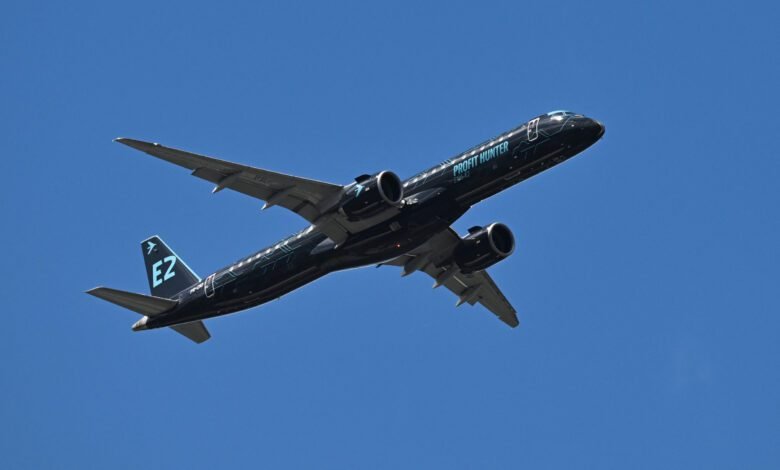In a world first, aircraft manufacturer presents automatic take-off technology

Brazilian aircraft manufacturer Embraer announced this week the introduction of a pioneering system that automates the takeoff process on the E2 aircraft, one of its narrow-body commercial aircraft. The takeoff phase of the flight has traditionally been managed solely by human pilots, and the new system promises to reduce the pilot’s workload in the cockpit.
The announcement was made at the Farnborough International Airshow, with the aircraft manufacturer highlighting the system’s potential to optimise payload and increase range from challenging airports such as London City (LCY). Embraer says that, apart from a software update, no modifications to the aircraft are required to automate the take-off process.
Automation in the phases of flight has been part of commercial aviation since the 1960s, although its use has become more prevalent in recent decades, generating some controversy in aviation circles.

Getty Images
Anxieties have been raised about the potential displacement of pilots and reliance on automated systems. The Airline Pilots Association, the world’s largest pilots’ union, has expressed significant concerns about the move to autonomous flight operations.
“While ALPA supports the use of technology to improve safety and sustainable growth initiatives for our air transportation system, the Association opposes, and will continue to oppose, some aspects of these new concepts, such as autonomous flight operations, the application of artificial intelligence with the intent of removing pilots from the cockpit or reducing human intervention at the controls of an aircraft,” a union spokesperson said. News week.
Embraer’s autonomous takeoff technology is a world first for any commercial aircraft. Scheduled to enter service by the end of 2025, the E2 Enhanced Take Off System (E2TS) claims to offer an additional range of approximately 350 miles. While pilots remain in charge of steering and thrust lever settings, the system manages rotation.
Ella Atkins, chair of the Kevin T. Crofton Department of Aerospace and Ocean Engineering at Virginia Tech, said technical concerns about automated takeoff, one of the most crucial and complicated parts of any flight, were overblown.
She said pilots already rely on autopilots and instruments to fly safely in poor weather conditions. “Increasing that responsibility to take off is not going to be a substantial increase in confidence for a well-trained pilot,” she said.
Embraer’s move towards automated take-off systems highlights the delicate balance between technological innovation and aviation safety, coming in the wake of two high-profile Boeing 737 crashes that were linked to automated flight control software that had not been properly transmitted to pilots.
While E2TS promises greater efficiency and reduced pilot workload, Atkins does not believe that automating flight operations will replace pilots in the cockpit, as some have suggested.
“Flight crews will continue to monitor automation and intervene until certification authorities like the FAA approve fully autonomous flight (without requiring pilot supervision). I expect at least one pilot to be required to supervise autonomy within the next decade, more because the community does not trust autonomy than because autonomy cannot reliably perform in all the conditions it is asked to handle,” she said.
Despite advances in onboard technology, there is still a significant trust deficit regarding fully autonomous systems, especially among the flying public. Atkins predicted that pilot supervision will remain a requirement for at least the next decade, although more due to a lack of trust than technical inadequacies.
Do you have a story Newsweek should cover? Do you have a question about this story? Contact LiveNews@newsweek.com
Uncommon knowledge
Newsweek is committed to challenging conventional wisdom and finding connections in the search for common ground.
Newsweek is committed to challenging conventional wisdom and finding connections in the search for common ground.




